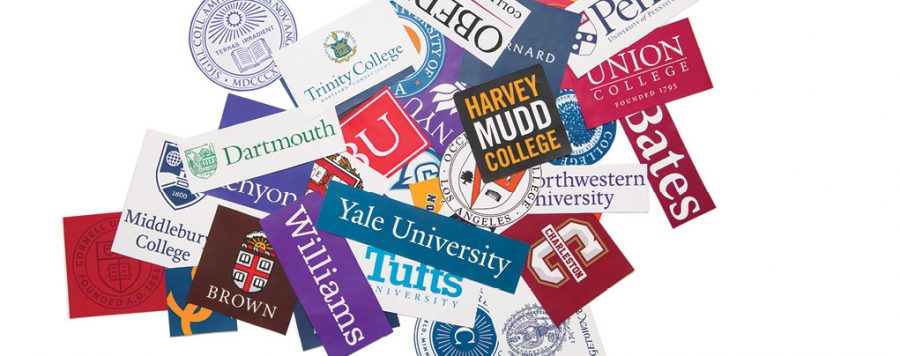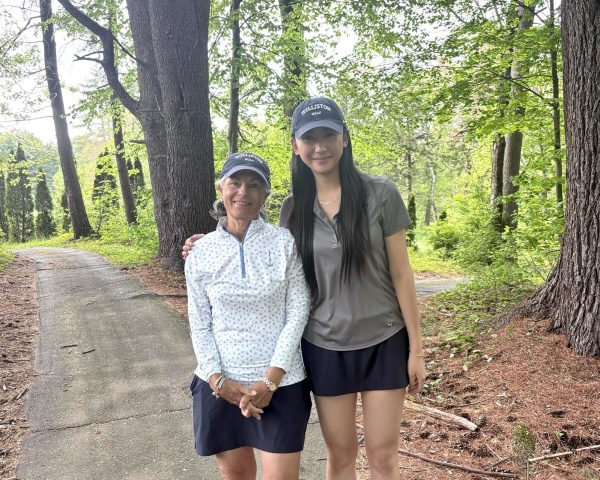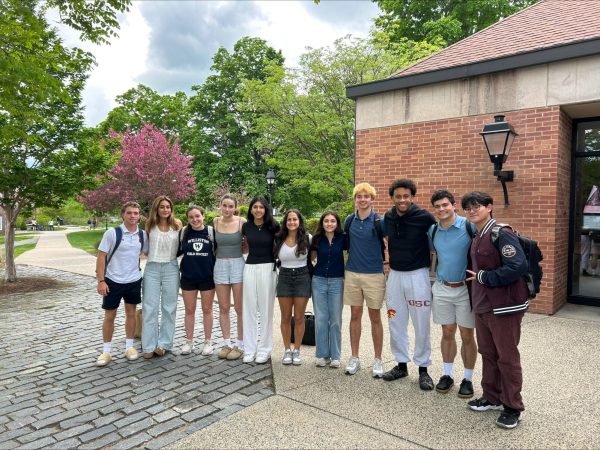You Got Into More than One College. How Do You Choose?
The college application process has officially closed for all seniors. But now comes another difficult part: choosing the right school.
Most of the results came out between mid-March to April 1, and now, seniors have to choose among the ones they were accepted to and make a deposit by May 1.
It is not always helpful, however, to look at school websites and virtual tours because they don’t necessarily give a full sense of the school, or the environment of the surrounding city or town. Therefore, the most reasonable way to find out whether a college is a place for you to spend the next four years of your life is by doing college visits.
For many people, these visits are a way to find out whether the colleges they’ve been accepted to fit their criteria before they make that initial, binding deposit.
Before her visits, Punn Kantaratt ’19 was struggling to decide between Providence College and George Washington University.
“The visits I had were very helpful because they helped me figure out where I want to end up for the next four years,” said Punn. “Before my visits I tried to look up information on the internet but then I still couldn’t figure out where was the right place for me. The visit showed me a lot more details that weren’t provided on the internet.”
Punn said how important it is to physically be at the place to meet with people and get a sense of the college environment.
“The internet couldn’t tell me about the city around campus and the students other than statistic numbers,” said Punn. “I got deeper information [about] George Washington’s business program through their information session for admitted students, and I had a talk with the professors and students that are going to the school, which helped me get a better sense of what the school can give me.”
After her visit, Punn decided George Washington is the perfect place for her.
Simon Kim ’19, recently went to a revisit day at Columbia University, which is one of his top choices.
Along with Punn, Simon believes that colleges, and the experience of being there, in person, can’t be summed up by statistics or pictures on a website.
“There is more to any college than numbers and simple facts, so I thought the best way for me to personally evaluate a college was to visit,” said Simon. “I wanted to really envision myself going to that college and just feel the ‘vibe.'”
One of the things Simon thinks would be helpful for students is “try to picture myself being a part of that experience. Would I want to see this campus everyday? Would I ever run out of things to do? Would I be perfectly at home here?”
In order to make sure that whatever college he attends is the right fit, explained Simon, he had to “set aside all the excitement and wonderment that come with all firsts, and put myself in the shoes of people who are in their third or fourth year. Would I still like it as much as the first day I set foot on campus?”
Simon believes students should not be too stressed out and too focused on one college because there are many options available for everyone; a student’s second or third choice might even be a better fit for them without them knowing it.
“I think it is too stressful if you think that there is only one right college for you, and that it is up to you to choose that college,” said Simon. “That makes this whole process like a multiple choice, a right-or-wrong question. I think a better approach is realizing that all the colleges that you got [accepted] to are amazing in their own ways, and that if you choose a college among them, by choosing that college, you are making it the right one for you. You don’t choose the right college; the right college is the one you choose.”
(Here, Simon referenced Olivander, from Harry Potter and the Philosopher’s Stone, who said, “The wand chooses the wizard, Mr. Potter.”)
Insoo Kang ’19, along with Simon, believes students should take control when it comes to their college decisions.
“Please don’t go to the school simply because it is ranked high,” Insoo said. “After talking to college counselling, academics is not the only factor in how rankings are created. There are many factors that go into the equation.” Insoo encouraged seniors to “go to a place [which] offers the best environment for you to grow as student and person.”
“Your parents can push opinions on you to lean towards another college,” he added, “but remember that you are the one who’s going to college and you should choose what you feel best because you know yourself the best better than anyone in the world.”
In choosing a college, Insoo said he considered not only the academics opportunities offered and the classroom environment, but also “the dorm and food quality, and the student life and diversity. Since the college I select is the place that I will foster my passions and make meaningful connections, I want to find a place where the environment is fully equipped with the criteria that will support me.”
Insoo will attend Boston University in the fall.
Nhi is a senior at Williston. She is from Hanoi, Vietnam. In her free time, she enjoys taking pictures and hanging out with friends. Next year she will...












